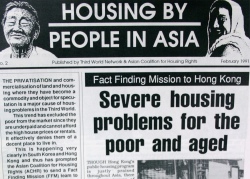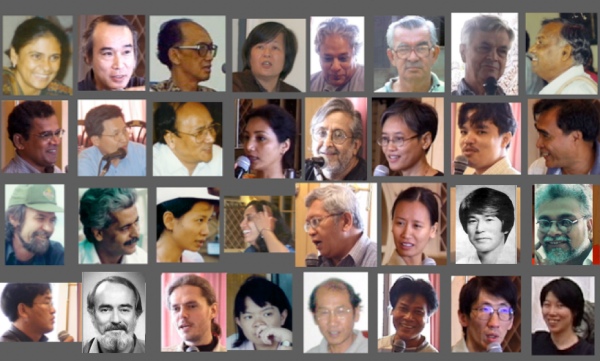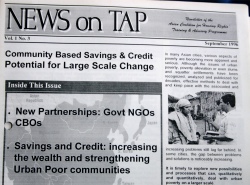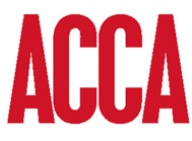- Home
- About us
- Activities
-
About us
- News & Update
- Library
- Countries
- extra
- contact
about us
History
When ACHR was formed in 1988, there was no common or regular forum for urban social activists, NGOs, professionals and especially for grassroots or community groups working in Asian cities to meet and exchange ideas. During the UN International Year for Shelter for the Homeless in 1987, several regional processes were organized which encouraged groups to share their experiences in addressing issues of urban poverty and housing and to discuss regional collaboration. At that time there was a shared recognition that new ideas and actions were needed to tackle the upsurge of forced evictions in Asia and to develop opportunities for organizations of the poor to gain due recognition and a meaningful role in city management and planning.












First Stage In the early years of ACHR (1988-1990), emphasis were given to housing rights and problems of evictions in Asian cities; International Fact Finding Missions that put pressure on governments were organized to South Korea (twice), Hong Kong and Philippines with positive outcomes.



Second Stage(1991-1993) developed solutions to eviction problems. At the same time ACHR explored new ways of enabling grassroots urban poor organistions to have a stroger voice in development issues: The first regional PEOPLES' DIALOGUE was organised and experiments in regional community to community exchanges across Asia were implemented. Such workshops and exchanges were no longer the monopoly of the professionals.


Third Stage Centred on the Training and Advisory Program (TAP) supported by DFID (UK) (1994-2000). TAP was a comprehensive package of support activities for ACHR partners with cross country learning, exchange visits, regional workshops, training from key regional projects, new country action programs and research. This added significantly to the knowledge and capacity of the regional intervention process.

Regional Workshop
Land Sharing in Bangkok
CO in the Philippines
People's Particpation in Orangi -OPP
Community Processes in Sri Lamka
KIP in Surabaya
Young Professionals Program
Country to Country Community Exchange Visits
Advisory Visits & Advocacy
Land Sharing in Bangkok
CO in the Philippines
People's Particpation in Orangi -OPP
Community Processes in Sri Lamka
KIP in Surabaya
Young Professionals Program
Country to Country Community Exchange Visits
Advisory Visits & Advocacy

Fourth Stage From 2000, represents a more mature process and a broader scale of intervention. This included the introduction of community savings and credit activities and the development of many Community Development Funds which have been able to influence new forms of development change in Lao PDR, Cambodia, Vietnam, Nepal, Mongolia, Sri Lanka, Thailand, Philippines and India. Regional responses to the Tsunami devastation have developed with the promotion of community-driven relief and rehabilitation. In terms of policy advocacy, the contribution of ACHR key activists has increasingly been recognised with requests to meet and share knowledge with policy makers including government Ministers. This reflects increasing interest in possible collaboration and support for urban community development and/or community upgrading programs. City-wide and country-wide slum upgrading in Thailand and India has been used to boost and support learning for structural change in other countries.

Fourth Stage From 2000, represents a more mature process and a broader scale of intervention. This included the introduction of community savings and credit activities and the development of many Community Development Funds which have been able to influence new forms of development change in Lao PDR, Cambodia, Vietnam, Nepal, Mongolia, Sri Lanka, Thailand, Philippines and India. Regional responses to the Tsunami devastation have developed with the promotion of community-driven relief and rehabilitation. In terms of policy advocacy, the contribution of ACHR key activists has increasingly been recognised with requests to meet and share knowledge with policy makers including government Ministers. This reflects increasing interest in possible collaboration and support for urban community development and/or community upgrading programs. City-wide and country-wide slum upgrading in Thailand and India has been used to boost and support learning for structural change in other countries.
Some ACHR interventions and support have been integrated into government policies, while others have been successfully up-scaled without government support. The upgrading of 100 slums per year in Cambodia and the community savings and credit groups initiatives in Lao PDR and Mongolia have developed into large-scale programs. Other activities include the production and widespread dissemination of international publications including the Housing By People series, Eviction Watch, and Understanding Asian Cities; also the work on protecting the heritage of cities by the participation of poor communities, the Young Professionals Program and regional information activities. ACHR is the Asian branch of the Habitat International Coalition and an executive Committee member of CITYNET. It also works closely with Slum/Shack Dwellers International (SDI) and collaborates with UN Habitat, UN-ESCAP, UNDP and the World Bank.
Some ACHR interventions and support have been integrated into government policies, while others have been successfully up-scaled without government support. The upgrading of 100 slums per year in Cambodia and the community savings and credit groups initiatives in Lao PDR and Mongolia have developed into large-scale programs. Other activities include the production and widespread dissemination of international publications including the Housing By People series, Eviction Watch, and Understanding Asian Cities; also the work on protecting the heritage of cities by the participation of poor communities, the Young Professionals Program and regional information activities. ACHR is the Asian branch of the Habitat International Coalition and an executive Committee member of CITYNET. It also works closely with Slum/Shack Dwellers International (SDI) and collaborates with UN Habitat, UN-ESCAP, UNDP and the World Bank.

Fifth StageFrom 2010, more recently ACHR has been implementing the ACCA program.: The Asian Coalition for Community Action Program (ACCA) is a three-year program whose target is to support a process of citywide upgrading in 150 Asian cities in Asia. Community people are the primary doers in planning and implementing projects in which they tackle problems of land, infrastructure and housing at scale in their cities, in partnership with their local governments and other stakeholders. The ACCA Program is built on the initiatives that have already developed in most countries in the region, by community organizations and their supporting groups, and it draws on their combined experiences and learning over the past 20 years. The program is an important tool for making change in situations of poverty - a tool which belongs to the urban poor and to all these active groups, and which is helping them to grow and to make change in their cities around Asia.

The ACCA Program has now completed its third year. The program has supported activities in 165 cities, in 19 countries. This very wide reach in such a short period of time has been a kind of region- wide experiment, and the experiment has proved already that urban poor communities and their development partners in all these cities are ready to address citywide problems and citywide development together. The program has demonstrated a new kind of development intervention, for the more open, democratic world we now live in, in which the poor have the freedom to decide things and manage their own development. In this model, instead of being seen as the problem or the passive recipients of somebody else’s idea of what they need, the poor themselves become the doers and the deliverers of solutions to the huge problems of urban poverty, land and housing in Asian cities.
Here’s proof in 165 Asian cities that citywide slum upgrading works, when PEOPLE do itThe ACCA projects now underway are creating space to implement citywide upgrading at scale. In all these 165 cities, city-wide community surveys are being conducted, and these surveys are being used to identify, prioritise and plan settlement upgrading projects, which are then carried out by community people themselves, in partnership with their city governments. The 110 big housing projects approved so far have helped 20,000 urban poor families to get secure land and housing, and have also facilitated the creation of city development funds, which are now operating as new joint financial mechanisms in many of these cities. Small upgrading projects (like walkways, drains, toilets and water supply), which have been approved in 949 poor communities, are allowing poor people to collectively develop solutions to immediate problems they face and are leading to more active involvement within the communities and more collaboration with their local governments.
Here’s proof in 165 Asian cities that citywide slum upgrading works, when PEOPLE do itThe ACCA projects now underway are creating space to implement citywide upgrading at scale. In all these 165 cities, city-wide community surveys are being conducted, and these surveys are being used to identify, prioritise and plan settlement upgrading projects, which are then carried out by community people themselves, in partnership with their city governments. The 110 big housing projects approved so far have helped 20,000 urban poor families to get secure land and housing, and have also facilitated the creation of city development funds, which are now operating as new joint financial mechanisms in many of these cities. Small upgrading projects (like walkways, drains, toilets and water supply), which have been approved in 949 poor communities, are allowing poor people to collectively develop solutions to immediate problems they face and are leading to more active involvement within the communities and more collaboration with their local governments.




